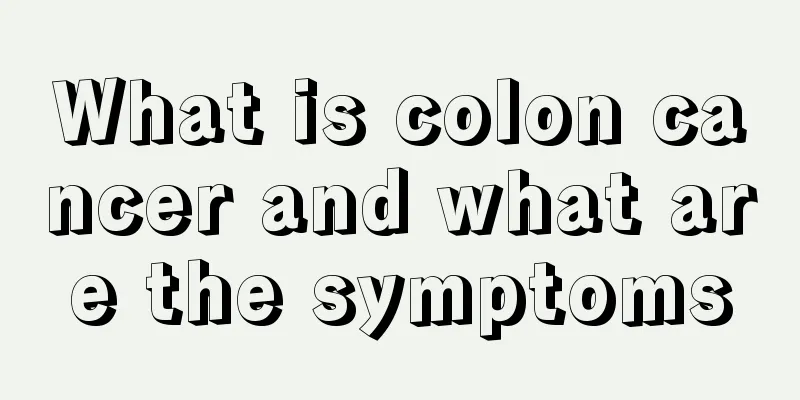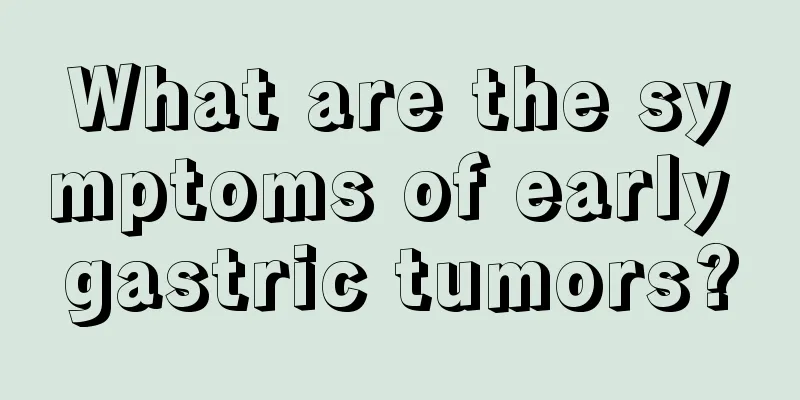What tests are needed to diagnose colorectal cancer

|
Although the incidence of colorectal cancer is very high, the symptoms of this type of disease are not obvious, so a diagnosis of colorectal cancer must be made through some examinations. The diagnosis of colorectal cancer mainly includes the following items. 1. Fecal occult blood test. Since colorectal cancer often presents with varying degrees of bleeding due to mucosal erosion and ulceration, a simple and easy fecal occult blood test can be used to monitor colorectal cancer. Early fecal occult blood tests were chemical colorimetric methods, and commonly used reagents were benzidine or guaiac, etc. In recent years, they have gradually been replaced by more specific immune occult blood reagents. However, since the fecal occult blood test cannot distinguish between cancerous and non-cancerous bleeding, it is currently mostly used as a preliminary screening method for large-scale population colorectal cancer surveys. However, a small number of early cancers may also present false negative results and lead to missed diagnosis. 2. Rectal mucus T antigen test. Also known as the galactose oxidase test, it is a simple method to detect specific markers of colorectal cancer and precancerous lesions. As long as the liquid on the rectal finger cot is smeared on a special paper film or glass slide, the galactose oxidase reaction and Schiff's reagent color development can be used to determine whether the patient's intestinal mucosa expresses T antigen. Clinical and general surveys have verified that this method has a high sensitivity and specificity for the detection of colorectal cancer. Its use in general surveys has a complementary effect with the immune occult blood test for colorectal cancer screening, but there are also certain false positive and false negative rates. 3. Endoscopic examination. It has been widely promoted and applied in clinical practice. For experienced endoscopists, routine X-ray examinations are often used. Full colonoscopy is especially recommended for clinical patients with highly suspected colorectal cancer to avoid missed diagnosis. Because fiber colonoscopy is safe and reliable, it can not only examine the size, shape, location, and mobility of the tumor, but also perform polyp or early micro-cancer resection, and can take tissue for biopsy of suspicious lesions. Therefore, it is currently the most effective means of diagnosing colorectal cancer. In colorectal cancer screening, it is often used as the "gold standard" to evaluate the effectiveness of various initial screening tests. In addition, colorectal cancer examination items also include other examinations, such as B-type ultrasound examination, CT tomography, magnetic resonance imaging, angiography, lymph node 99mTc isotope scanning, etc. for clinical colorectal cancer diagnosis, and the evaluation of the results varies. What tests are required to diagnose colorectal cancer? The above is a detailed introduction for you. I hope it will be helpful to you. Choosing a treatment method as early as possible will be of great help to you and restore your health soon. |
<<: Diagnosis criteria for colorectal cancer
>>: What are the key points in diagnosing colorectal cancer
Recommend
How to determine whether it is bladder cancer
Bladder cancer is a common malignant tumor in the...
What to do if your scalp itches after dyeing your hair? We must prescribe the right medicine for the right condition
Many young people have a hobby of dyeing their ha...
What is the representative formula of the sweet and warm heat removal method
From the perspective of traditional Chinese medic...
The difference between xylitol and sugar
Xylitol and sugar are not the same substance, but...
What are the treatments for early bone cancer
Bone cancer has a great impact on people's da...
Postoperative care for renal cancer patients after nephrectomy
Radical nephrectomy is the main method for treati...
What are the symptoms of pesticide allergy
When we grow vegetables or other crops, we cannot...
How to have thick hair? Diet is the key
Thick hair can make people look full and energeti...
The difference between grass beads and coix seeds
Grass beads and coix seeds are two similar foods....
What are the dietary taboos for patients with cerebral thrombosis?
Cerebral thrombosis is becoming more and more com...
8-month-old baby food schedule_8-month-old baby food amount for one meal
Babies aged 8 months can start to eat complementa...
What are the treatments for rotavirus enteritis
The disease rotavirus enteritis may sound unfamil...
What is the compression frequency for adult CPR?
Cardiopulmonary resuscitation is a very familiar ...
I feel something pressing on my chest
Sometimes you may feel like something is pressing...
How to care after lip bleaching
With the rapid development of science and technol...









